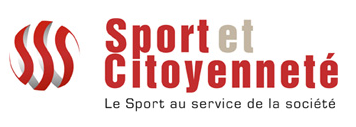Your DG published a Green Paper on on-line gambling in the Internal Market. What is the scope of this document?
MB: The purpose of this Green Paper is to launch an ambitious consultation, without any preconceived ideas about the possible outcome. The on-line gambling market in the EU is growing at a fast pace and generating large sums of money. To a certain extent these revenues can contribute to the funding of what I would call “public goods”, such as charitable works in some countries, or amateur sports. But the lucrative nature of this activity (for the operators) and its addictive potential (for gamblers) mean that it poses important threats to society. The development of the on-line gambling market – which is a reality – needs to be accompanied by the confirmed will to protect people – particularly the most vulnerable such as minors, and to ensure that what is available within the EU is safe and well-regulated.
The public consultation replies to wishes expressed by the European Parliament and member states for a thorough analysis of the different aspects of this matter. The aim is not to liberalise the market, but to examine the main issues raised by its development and possible responses at the European and the national level.
The sports sector is directly concerned in these issues in so far as certain operators give funding to developing mass sport. What is your position on this question?
MB: The consultation is looking at the different systems for allocating the money from these activities to the public good and the mechanisms for redistributing money raised from on-line gambling, both public and private, for the benefit of society through support for the arts, education, sport and so on. The contributions from the different stakeholders will help us to form a more accurate opinion of the issues and thus better determine whether action needs to be taken at the European level.
On 16th February 2010 you organised a conference on funding models for sport for all. What did you learn from this? What are the objectives of the study you have launched on this subject?
MB: In response to strong demand, in 2007 within the “Pierre de Coubertin” action plan which accompanied the White Paper on Sport, the Commission made a commitment to carry out an independent study into the “funding of sport for all in the EU”, in order to analyse the different sport funding models operating in the member states. And also to enable us to take the right decisions in our Internal Market policies. This study will make a useful contribution to the debate by providing reliable data. It will shortly be available.
The 2010 conference gave all the stakeholders the opportunity to express their points of view on the question of sport for all funding. The main aim was to present the different funding systems pertaining to sporting disciplines and member states, discuss the impact of the recent economic and financial crisis on sport funding, identify any challenges relating to funding and select a certain number of disciplines and countries to be analysed in greater detail during the next stages of the study into the funding of sport for all. The conference brought together representatives from the 18 member states. Some MEPs were present, and also the Olympic movement, national and international sporting confederations and associations, along with various private operators involved in sport. This made the debate all the more productive.
Apart from the risk overshadowing sport funding, the liberalisation of on-line gambling also gives rise to anxiety concerning the integrity of competitions and the increased danger of match fixing. Will measures be taken to combat this scourge?
MB: First the magnitude of this problem needs to be assessed, and this is the aim of the consultation launched by the Green Paper. But I think that the danger exists and that measures must be taken at the national level and perhaps even at European level. There are many interesting initiatives, some of which come from public bodies and others from on-line gambling operators, who do not want to see sporting fixtures losing their credibility, as they would be the first to suffer.
Action can be taken in numerous ways: by raising awareness and educating athletes and the people around them about the risks, by developing their reflexes about what they may and may not do, but also by defining where gambling has a place and where it does not (because the risk of cheating would be too great). Or else by monitoring bets and fixtures very strictly so as to detect any abnormal behaviour and by cancelling all bets when there is a strong suspicion of fraud.
Preserving the integrity of sport is an important issue and one which could well call for a coordinated European approach. Indeed, it must be understood that with a major sporting event betting will take place in numerous countries and not just in the country where the event is taking place! Think of the French Open Tennis championship or the Formula 1 Grand Prix, for example. This means that even if the host country has very strict rules, enormous numbers of bets will be taken in other member states in ignorance of these restrictions. The temptation to cheat will therefore be very strong. It may be time to think of European or international mechanisms allowing agreement on a common approach to this kind of risk.
Do you think the sports sector can contribute to the goals defined in the Europe 2020 strategy (smart, sustainable and inclusive growth)?
MB: Sport can contribute to the goals of the Europe 2020 strategy. The Commission’s sport strategy is set out in our recent communication entitled “Developing the European Dimension in Sport”. The paper recognises the economic and societal importance of sport and proposes concrete actions for the Commission and/or the Member States. The actions aim to encourage debate among stakeholders, address EU-level challenges and help the sport sector develop. The Commission is currently discussing an EU Sport Programme, which would contribute to achieving smart, sustainable and inclusive growth.
The contribution of sport is significant if we consider its impact across related sectors such as tourism, TV or the construction of sport stadia. Sport also has a strong potential to contribute to growth and new jobs through its positive effects on social inclusion, education and training, and public health. We know on the basis of economic research that, for instance, in Cyprus 2.2% of total employment is sport-related, in the United Kingdom 2% and in Austria it reaches 5.8%
More generally, our think tank is working on the idea of European citizenship. Do you think sport can play a role in this field, through its social, educational and citizenship aspects?
MB: Sport has a clear educational and social role in terms of ’citizenship’. These benefits derive not only from the benefits of practising sport for your health but also because, through participation in sport clubs, people often engage in voluntary activities that are positive for their community. In countries such as Finland and Sweden, 18% of citizens are sport volunteers.
Our aim is to develop an EU agenda for sport with actions in areas where the EU’s added value can be clearly demonstrated and which complement and support the actions of Member States. Issues that often come to mind include the combination of sports training and general education; the promotion of health enhancing physical activity; the fight against doping, sport-related intellectual property rights; and the integrity of sport, in particular as regards illicit betting activities.
The Commission has already allocated more than €6 million to support around 40 sport projects aimed at promoting health, social inclusion, volunteering, and access for the disabled, gender equality and the fight against doping.



Follow the comments: |
|
